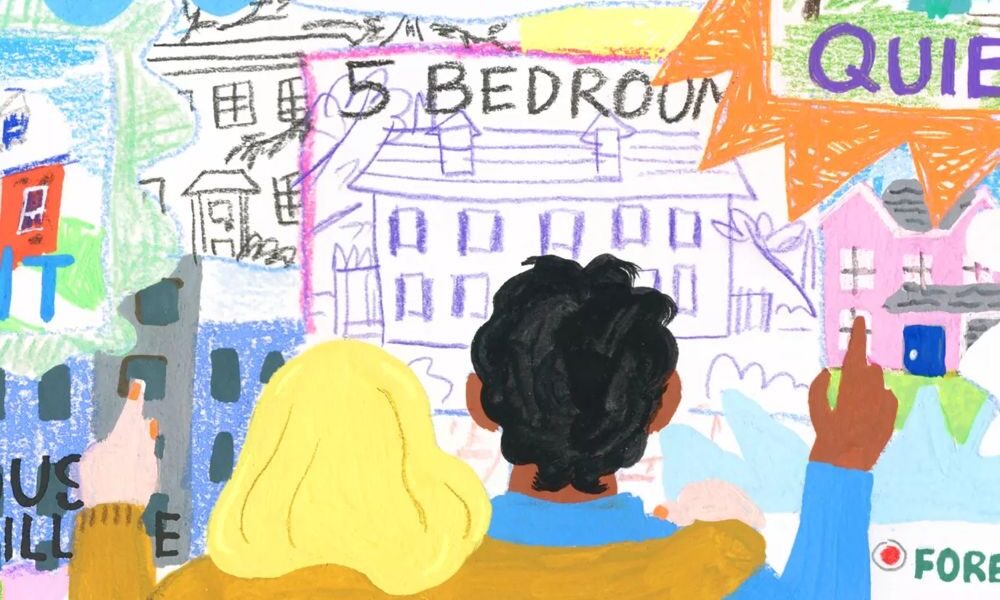If you’re a student in Montreal, you know how difficult it is to find affordable housing. According to the Association des Professionnels de la Construction et de l’Habitation du Québec (APCHQ), the vacancy rate has fallen below the three per cent equilibrium threshold, where supply and demand are equally matched. In Montreal, this means a shortage of 100,000 housing units. The housing shortage has caused soaring rent prices and interest rates, disproportionately harming the city’s most economically precarious groups.
On the other hand, 16 per cent of the office buildings in downtown Montreal sit vacant, partially due to an uptick in remote work. Turning these offices into residential units alongside multi-level governmental intervention, though a difficult and expensive undertaking, ultimately holds great potential to alleviate the housing crisis.
Montreal is in desperate need of affordable housing. According to a 2022 survey, 86 per cent of Montrealers feel that the homes in their neighbourhood are unaffordable. Meanwhile, rental costs have increased everywhere due to high demand and insufficient supply. High interest rates are preventing young people from buying property and encouraging real estate developers to charge sky-high rents. These higher rents contribute to housing insecurity, as research shows that a $100 USD increase in median rent directly correlates to an increase in housing insecurity.
The biggest advantage of converting office buildings into residential spaces is the quickness of implementation. Demolition is time-consuming; converting offices into apartments is much faster. In parallel, construction costs are also rising due to inflation, and restructuring a building is often cheaper than completely re-building it. According to the architecture and design firm Gensler, around 25 per cent of the downtown offices in major North American cities could be converted into housing units. Adaptive reuse of buildings can also drastically cut construction’s contribution to global carbon emissions.
This would not be the first time cities have converted office buildings into residential units. In New York City, for example, 13 per cent of Lower Manhattan’s office buildings were converted into residential apartments between 1995 and 2006. In Philadelphia, 5.5 per cent of all apartment units were previously office buildings, resulting in a 55 percent increase in the number of people living downtown.
But the creation of apartment complexes out of office spaces has been historically unaffordable. The conversion of office buildings in Manhattan, for example, led to the creation of primarily expensive, luxury apartments that only worsened gentrification. That certainly would not serve Montreal or low-income and racialized renters most affected by the housing crisis.
Converting offices into residential spaces may eventually end up costing more than building new apartment buildings, particularly when taking into consideration space layout, structural features, and the anticipated cost. Developers like Altus Groups in Toronto, therefore, feel discouraged from converting office buildings into housing, instead preferring to demolish and start from scratch. But why might this change be worth it?
Just as the Quebec government should complete its promise of building 14,000 affordable units, our municipal, provincial, and federal governments should not only coordinate with each other, but also create incentives for architecture firms to create such apartments at lower costs. Physical conversions are difficult for several reasons: The shape of office buildings, their lack of extensive plumbing, and the absence of openable windows would all need to be reassessed in order to create liveable apartments. This is particularly troubling given the lack of affordable housing. If developers encounter high costs during construction, they will likely want to offset them by charging higher prices for the units. Taking a two-pronged approach of re-investment and incentivization will ensure they get made and include affordable units.
Ultimately, converting downtown buildings into housing may prove to be a sustainable solution to Montreal’s housing crisis. In the short term, however, the government should step in through measures like rent control or a rent registry. In 2019, Canada declared that affordable housing was a human right; amid the housing crisis, our governments must set an example by subsidizing affordable housing for everyone.









